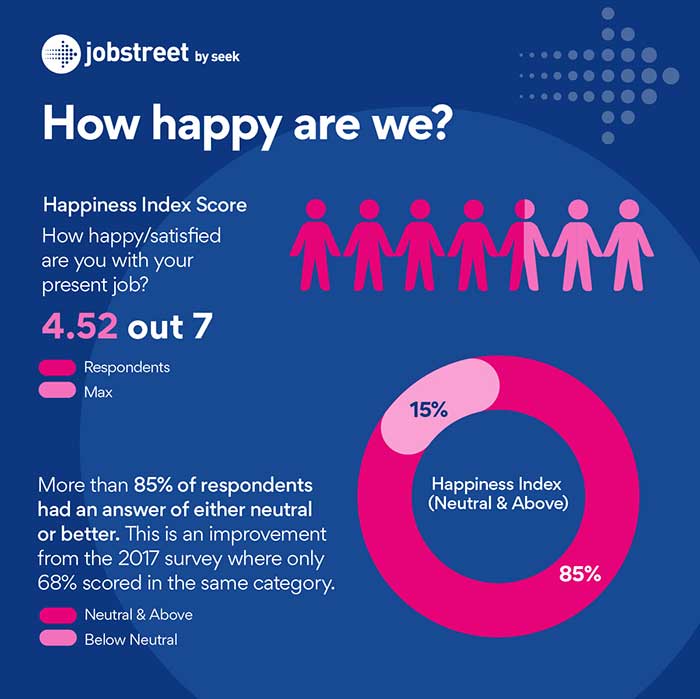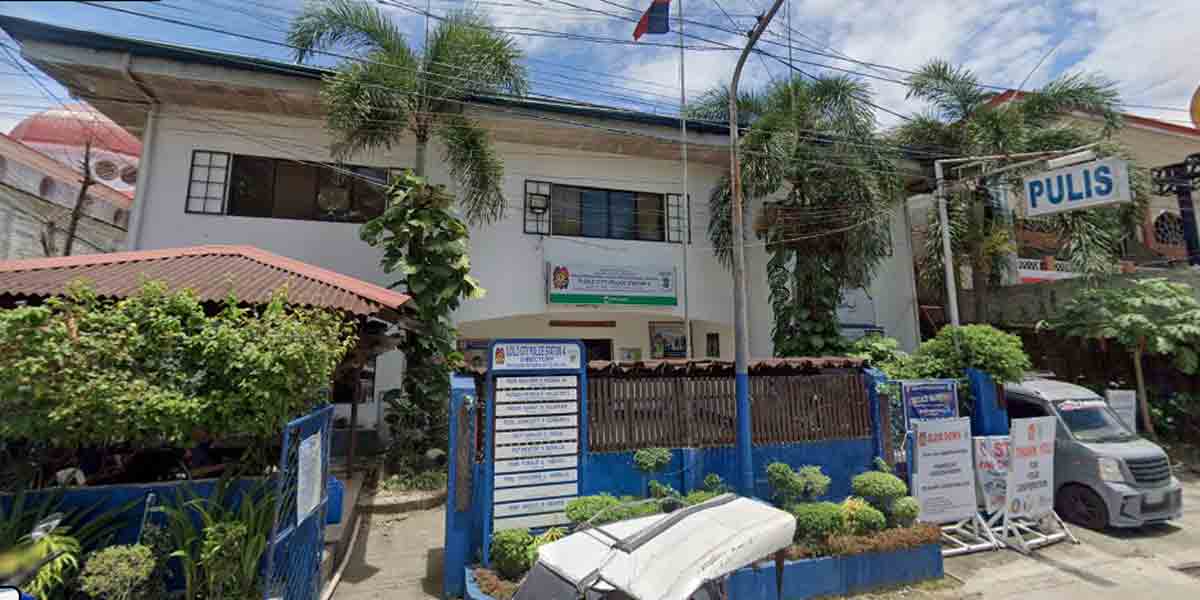
Eighty-five percent of Filipino workers report being either satisfied or neutral about their jobs, marking a significant increase from pre-pandemic levels, according to JobStreet by SEEK’s 2024 Employee Job Happiness Index.
The survey, which gathered responses from over 900 employees across various industries, found that Filipino job satisfaction rose to a Happiness Index score of 4.52 out of 7, compared to just 68% of workers who reported similar feelings before the pandemic in 2017.
One of the main factors cited for the increased satisfaction was the flexibility offered by work-from-home (WFH) setups. Employees who work remotely reported the highest job satisfaction scores, with a rating of 4.82. This group also gave a higher score of 4.92 when it came to work-life balance, suggesting that remote work is playing a key role in improving employee happiness.

“The increase in job satisfaction, especially among those working remotely, shows how work environments have evolved post-pandemic,” said Dannah Majarocon, Managing Director of JobStreet by SEEK in the Philippines.
“As a talent partner, JobStreet encourages employers to provide flexible, conducive work arrangements that benefit both current employees and potential candidates.”
Filipino workers in Mindanao were the happiest, scoring 4.59 in the Happiness Index, while employees in the National Capital Region (NCR) scored the lowest at 4.46. Respondents in Metro Manila attributed their dissatisfaction to traffic congestion and the challenges of commuting, which continue to be a source of stress despite improvements in other areas.
Generational differences also played a role in job satisfaction. Gen Z employees, those aged 23 to 27, reported the lowest scores, with an average of 4.28. Analysts suggest that younger workers may feel less satisfied due to differing expectations of work culture and the importance of work-life balance compared to older colleagues.
Married or partnered employees, on the other hand, reported higher levels of job satisfaction, scoring 4.60 compared to 4.46 for single employees. This may reflect the importance of work-life balance in maintaining personal relationships alongside career responsibilities.
Beyond remote work, the survey identified career development, training opportunities, and salary as the top factors contributing to employee satisfaction. Many respondents expressed the need for employers to offer growth opportunities and career advancement to improve their overall happiness at work.
The growing trend of remote work, normalized by the pandemic, appears to have significantly influenced the way Filipino workers perceive job satisfaction. This shift in expectations signals that companies must continue to offer flexible work options and career development to keep employees happy and engaged.


















